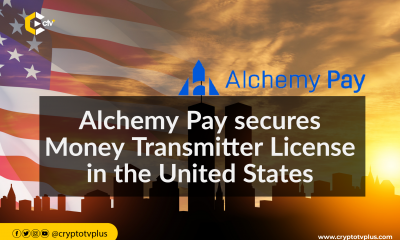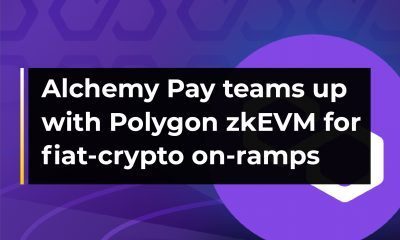News
Alchemy Pay and Legend Trading partner for crypto payments

Alchemy Pay and Legend Trading come together to make crypto payments easier for users. The two Web3 companies have entered into a strategic partnership aimed at enhancing accessibility to cryptocurrencies.
This involves the introduction of US dollar, euro, and British pound deposit channels, offering a more diversified range of fiat currency options to crypto users.
Alchemy Pay is a payment solution provider that bridges the gap between fiat and crypto by providing a hybrid payment system that incorporates both fiat and cryptocurrency payments.
Alchemy Pay provides a payment gateway service that seamlessly connects crypto and global fiat currencies for businesses, developers, and end-users.
Legend Trading Company is a leading U.S.-regulated crypto trading firm that provides deep liquidity and competitive quotes for counterparties to execute large orders.
The company is trusted by over 800 institutional clients and has a trading volume of over $10 billion per year.
Legend Pay into Alchemy Pay
According to Alchemy Pay, a vital aspect of the partnership is the integration of Legend Pay, a product line from Legend Trading, into Alchemy Pay’s platform.
Legend Pay serves as a fiat-to-crypto gateway and boasts an institutional-grade trading service.
This integration will not only enable Alchemy Pay to support multiple fiat currencies, including the US dollar, euro, and British pound but also introduce ACH transfers and Wire Transfer dollar transfer methods for USD transactions.
It further states that the two payment infrastructures share a common vision of simplifying cryptocurrency access for users worldwide.
This partnership aligns with Legend Pay’s ongoing efforts to construct a payment infrastructure that seamlessly integrates trading, payment solutions, and regulatory compliance.
While Legend Pay has been integrated with top Web3 first such as KuCoin, Gate.io, Cobo, Phemex, Bitrue, Ellipal, Bitmart, and BingX, Alchemy Pay has a well-established track record of enhancing payment capabilities by collaborating with prominent payment processors.
Read also; Alchemy Pay secures Money Transmitter License in the United States




















